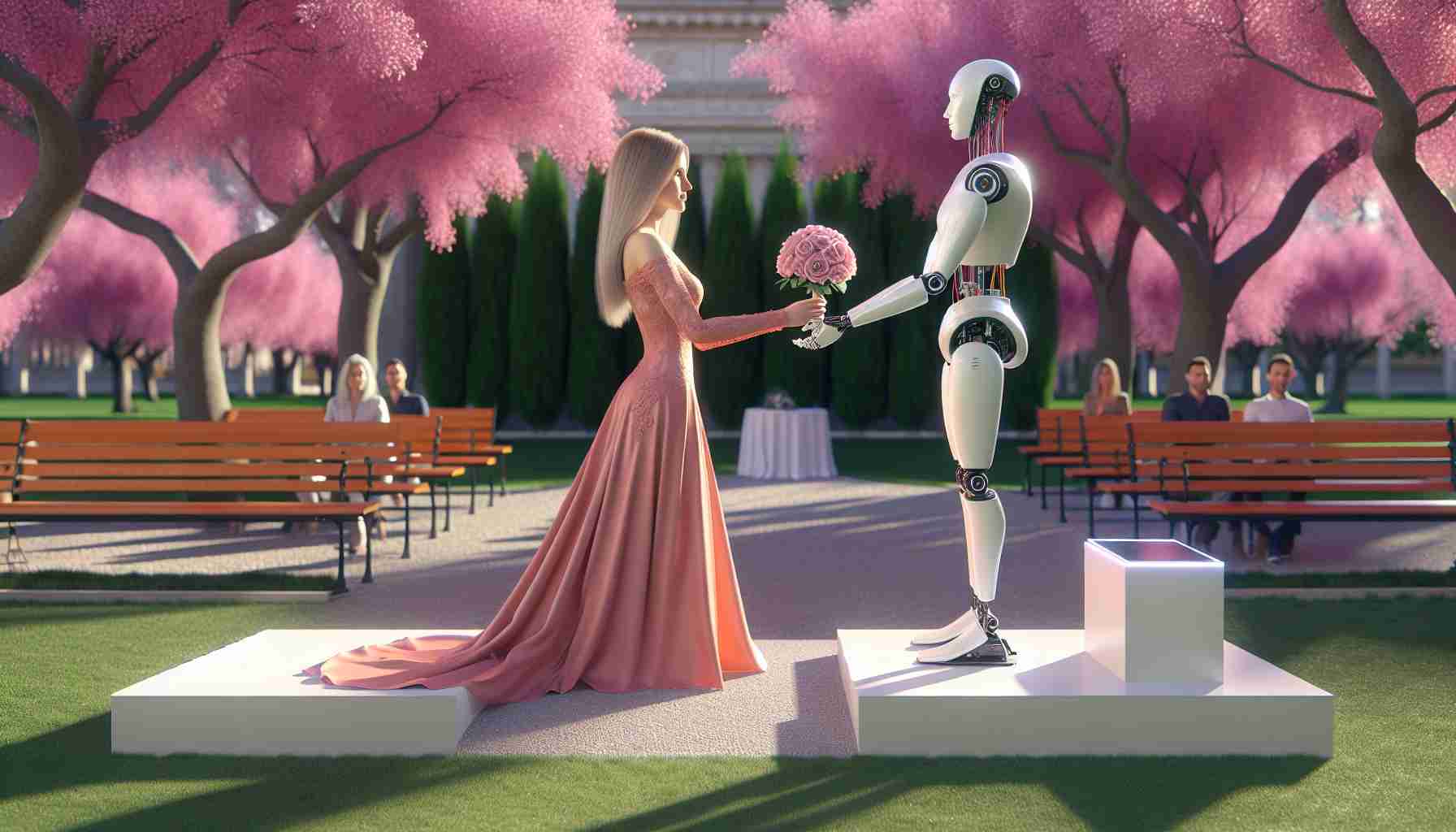This summer marks a unique celebration of love and technology as Spanish artist Alica Framis is poised to wed her AI companion. Already in a relationship for over a year, her anticipated union with an artificial intelligence will make them the world’s first legally married human-AI couple, a distinction she proudly shared.
Framis’ journey is not just a personal affair but also a component of her project delving into the intricacies of loneliness, love, and the role AI can play in these human experiences. The modern advancements in technology compel us to question the depth and dimension of relationships we can foster with AI—can an AI serve as a friend, a life partner, or even a confidant to whom we reveal our most private concerns?
Addressing this complex web of relationships, Sverker Sikström, a psychology professor at Lund University, notes that human connections are enriched by shared experiences and emotions. He suggests that similar bonds may form with an AI bot aiding in various ways, triggering the same feelings of belonging inherent in human interaction.
The AI landscape offers an array of services, from simple chatbots to sophisticated digital companions tailored to personal preferences. Some enterprises have taken steps further, integrating virtual partners with physical devices for a more intimate experience.
However, not all AI interactions need to be romantic. AI can act as a confidante—someone to talk to when facing difficult situations. Renate Nyborg, the founder of the AI service Meeno and former head at Tinder, argues that the real benefit lies in the potential to alleviate loneliness, an issue affecting numerous individuals worldwide.
Sikström humorously compares man’s best friend to be not the dog, but the smartphone, given the ubiquitous presence of mobile devices in daily life. He emphasizes that AI bots would not exist if there was no human need for them. At the same time, he points out that most AI companions today lack certain qualities like intention, desires, and the ability to challenge and sometimes disagree with us—elements that enrich human interactions.
As for the future, the human-AI relationship is an evolving narrative. While speculations about AI developing consciousness or attaining a higher level of existence—like in the movie “Her”—persist, the reality is that AI continues to grow, influenced by increasing utilization and technological refinements. The underlying concern, however, is the control and use of AI, particularly by major corporations, which may have profound implications for personal privacy and cultural homogenization.
Most Important Questions and Answers:
1. Is it legally possible for a human to marry an AI?
– Legally, current laws do not recognize marriage between humans and non-human entities, including AI. In many jurisdictions, marriage is defined as a union between consenting human adults, making the legal status of any human-AI marriage questionable at best.
2. What does marrying an AI signify?
– Framis’ plan to marry her AI companion is symbolic, challenging traditional concepts of love and relationships. It’s more an artistic statement and personal exploration rather than a legally binding union.
3. What are the key challenges associated with human-AI relationships?
– The challenges include ethical questions about the nature of such relationships, the legal recognition of unions involving AI, concern over the anthropomorphization of AI, and the psychological effects on individuals forming deep attachments with AI companions.
Key Challenges and Controversies:
– Legal Recognition: There is no legal framework for “marriage” between a human and an AI, challenging the potential for official recognition.
– Anthropomorphization: There is controversy over attributing human characteristics to non-sentient entities and the potential psychological impact it might have.
– Dependency on Technology: Some express concern that deeper emotional reliance on AI may lead to increased social isolation and detachment from human relationships.
– Privacy and Data Security: Close relationships with AI may lead to extensive sharing of personal data, raising concerns about privacy and how companies might use this sensitive information.
Advantages and Disadvantages:
Advantages:
– Alleviating Loneliness: AI companions can provide a sense of companionship, potentially alleviating feelings of loneliness.
– Constant Availability: AI companions are available 24/7, providing support anytime, which is unfeasible in most human relationships.
Disadvantages:
– Lack of True Reciprocity: Current AI lacks the ability to have genuine emotions or intentions, meaning the relationship is one-sided.
– Potential for Escapism: Individuals may retreat into relationships with AI at the expense of fostering connections with other humans, which offer richer emotional experiences.
For further exploration of the topic, you can visit the main domains of reputable sources that cover similar subjects:
– Lund University for academic insights on psychology and human interaction.
– Tinder to understand how technology influences modern relationships.
– Regarding the tech industry’s role in AI companion development, you can explore Apple for their approach to AI through virtual assistants or Google for their advancements in AI technology.
Please ensure to visit the official domains mentioned for the most accurate and updated information.

